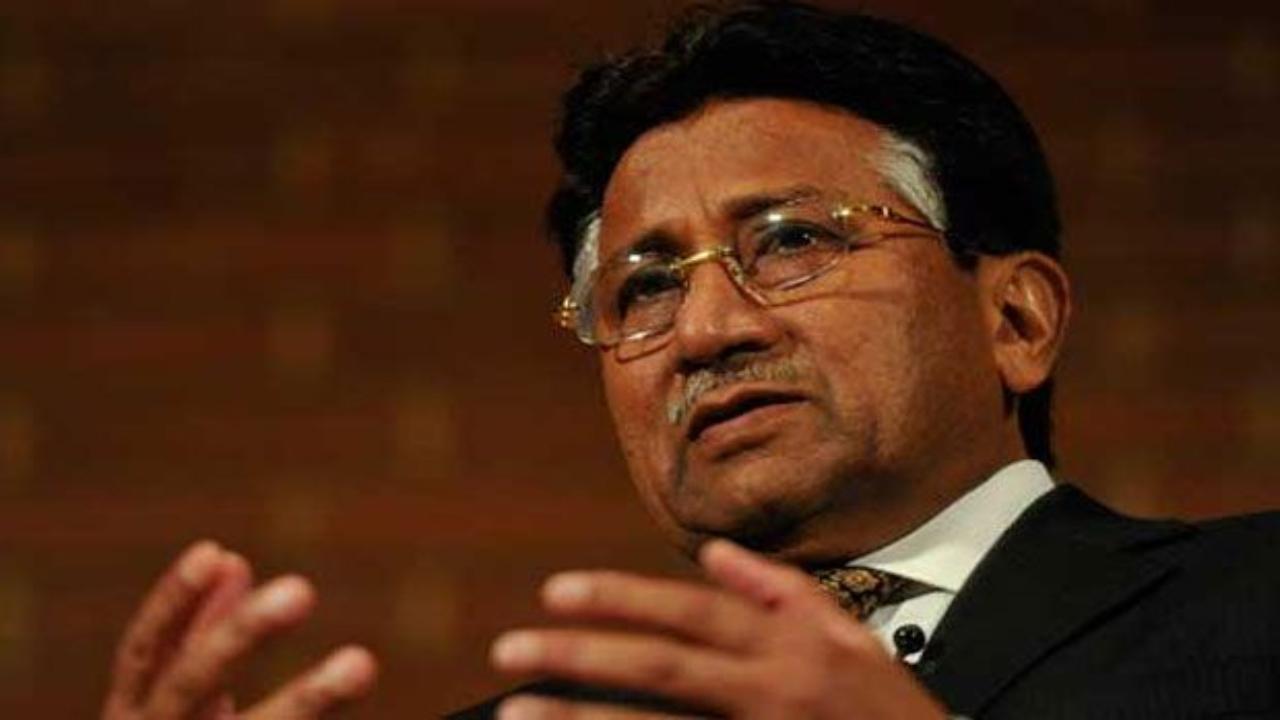Analysts say the issue of Kashmir "which remains the most potent point of contention between India and Pakistan" was close to being solved during the Musharraf era. But the peace process was derailed soon after his rule

File Photo/AFP
Pakistan's former president General (retd) Pervez Musharraf passed away on Sunday in a Dubai hospital, according to media reports.
Musharraf, 79, was suffering from amyloidosis, a rare disease caused by a build-up of an abnormal protein called amyloid in organs and tissues throughout the body, The Express Tribune reported.
The military ruler had been undergoing treatment at American Hospital Dubai, Geo News reported.
Musharraf was born on August 11, 1943 in Delhi.
Also read: BMC Budget wakes up to city’s poor air quality levels
He assumed the post of Chief Executive after imposing martial law in the country in 1999 and served as the president of Pakistan from 2001 to 2008.
The former president's family moved from New Delhi to Karachi in 1947. He joined the Pakistan Army in 1964 and was a graduate of the Army Staff and Command College, Quetta.
He enjoyed strong support for many years, his greatest threat al Qaeda and other militant Islamists who tried to kill him at least three times.
But his heavy-handed use of the military to quell dissent as well as his continued backing of the United States in its fight against al Qaeda and the Afghan Taliban ultimately led to his downfall.
Born in New Delhi in 1943, Musharraf was four years old when his parents joined the mass exodus of Muslims to the newly created state of Pakistan. His father served in the foreign ministry, while his mother was a teacher and the family subscribed to a moderate, tolerant brand of Islam.
He joined the army at the age of 18, and went on to lead an elite commando unit before rising to become its chief. He took power by ousting the then prime minister, Nawaz Sharif, who had tried to sack him for greenlighting an operation to invade Indian-held areas of Kashmir, bringing Pakistan and India to the brink of war.
In his early years in government, Musharraf won plaudits internationally for his reformist efforts, pushing through legislation to protect the rights of women and allowing private news channels to operate for the first time.
His penchant for cigars and imported whisky and his calls for Muslims to adopt a lifestyle of "enlightened moderation" increased his appeal in the West in the aftermath of the Sept. 11, 2001 attacks in the United States.
He became one of Washingtons most important allies after the attacks, allowing U.S. forces to operate armed drones from secret bases on Pakistani soil that killed thousands and ordering domestic troops into the country's lawless tribal areas along the Afghanistan frontier for the first time Pakistan's history.
That helped legitimise his rule overseas but also helped plunge Pakistan into a bloody war against local extremist militant groups.
In a 2006 memoir, he took credit for saving Pakistan from American wrath saying the country had been warned it needed to be 'prepared to be bombed back to the Stone Age' if it did not ally itself with Washington.
Musharraf also successfully lobbied then-President George W. Bush to pour money into the Pakistani military. Still, the army's allegiances were never unambiguous: its powerful intelligence services cut deals with the Taliban and al Qaeda, and bolstered an insurgency fighting U.S. troops in Afghanistan.
In other areas of foreign policy, Musharraf attempted to normalise relations between New Delhi and Islamabad.
At a regional summit in 2002, less than three years after launching the military operation against India, Musharraf shocked the world when, after finishing a speech, he suddenly moved towards Indian Prime Minister Atal Bihari Vajpayee to shake hands and offered to talk peace.
Analysts say the issue of Kashmir "which remains the most potent point of contention between India and Pakistan" was close to being solved during the Musharraf era. But the peace process was derailed soon after his rule.
The years of his presidency were increasingly authoritarian. In 2006, Musharraf ordered military action that killed a tribal head from the province of Balochistan, laying the foundations of an armed insurgency that rages to this day.
The next year, more than a hundred students calling for the imposition of Sharia law were killed after Musharraf shunned negotiations and ordered troops to storm a mosque in Islamabad.
That led to the birth of a new militant group, Tehreek-e-Taliban Pakistan, which has since killed tens of thousands in suicide bombings and brazen assaults.
In 2019, a court sentenced him to death in absentia for the 2007 imposition of emergency rule but the verdict was later overturned.
 Subscribe today by clicking the link and stay updated with the latest news!" Click here!
Subscribe today by clicking the link and stay updated with the latest news!" Click here!








